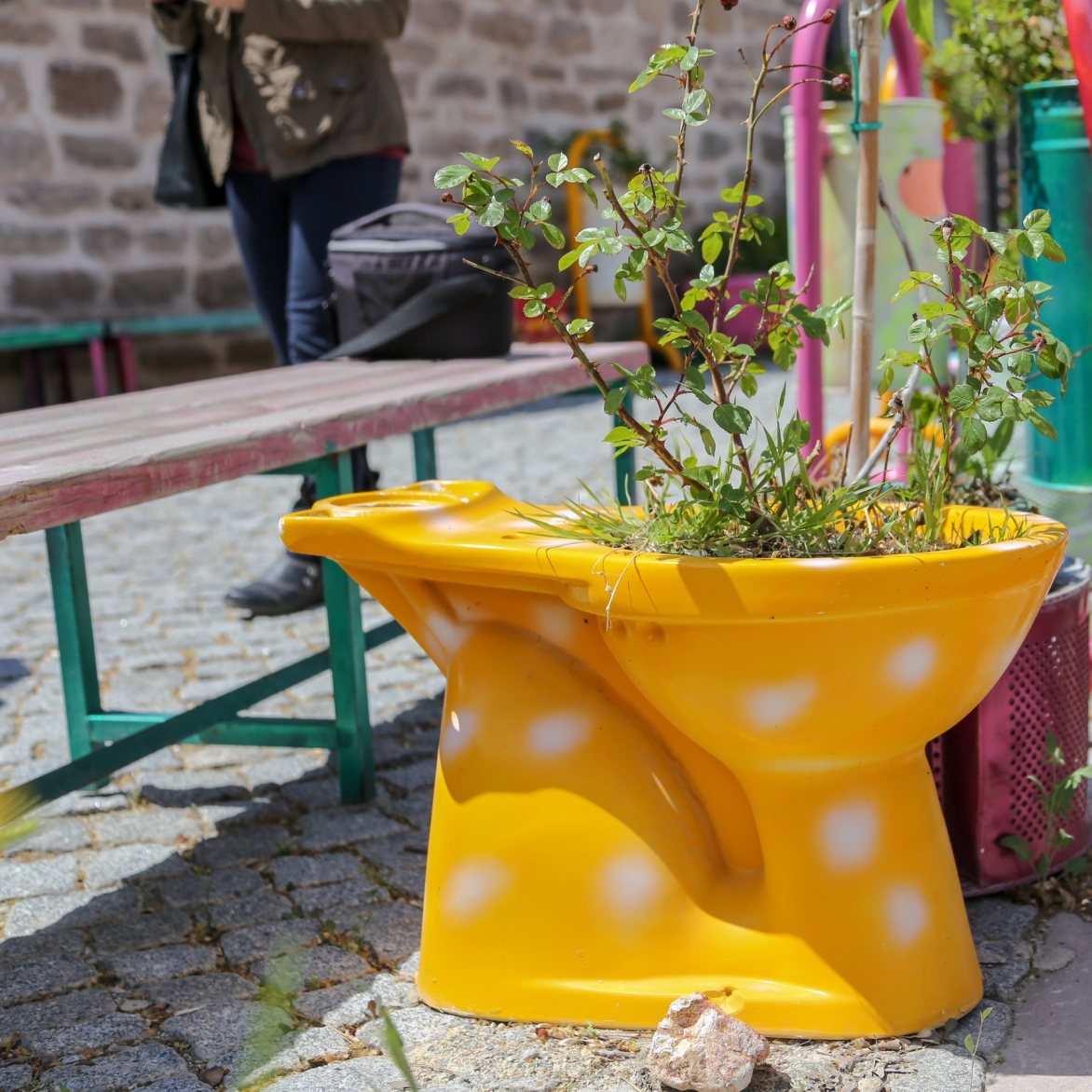A man’s porcelain gardens made of toilets is a form of artistic expression protected by the First Amendment, a federal district court in New York has ruled. The court reasoned that the Village of Potsdam’s “junk” ordinance could not be used to force the man to remove his “toilet art” from public view.
Frederick “Hank” Robar takes toilets and repurposes them as flower pots, forming what he calls “porcelain gardens” that he displays on all seven of his properties. He initially created the toilet art as a form of political protest in 2005 after the city denied him a special-use permit for two of his properties.
However, he now creates his “porcelain gardens” as an art form and has garnered significant local, state, and even national attention for his work. In 2018, the Village of Potsdam Board of Trustees enacted a “junk storage” law, which provides:
The deposit, accumulation, display and/or outdoor storage of junk, junk appliances, junk furniture, junk mobile homes, junk motor vehicles, garbage, regardless of quantity, is hereby prohibited within sight of neighboring property/properties and/or business concerns.
The board claimed its junk-storage law furthered its interests in aesthetics and public safety, in that it said such displays were an “attractive nuisance” that could draw the interest of children. Violations of the law result in fines. The board ultimately concluded that Robar’s toilet art was a form of junk within the meaning of its law and ordered their removal.
Robar countered with a federal lawsuit, alleging a violation of his constitutional rights, including his right to freedom of expression under the First Amendment.
On Sept. 21, 2020, U.S. District Judge Lawrence E. Kahn ruled in Robar v. Village of Potsdam Board of Trustees that Robar was entitled to a preliminary injunction because the application of the junk-storage law violated his First Amendment rights.
Judge Kahn first determined that the toilet art was a form of “protected speech,” thus triggering application of the First Amendment.
Robar argued that the law, as applied to him, was an impermissible content-based law targeted at his art. But Kahn determined the law was content-neutral and applied across the board to a wide variety of things labeled as junk.
However, the judge also ruled that the junk-storage law “sweeps too broadly” and was not narrowly tailored. He noted that the Potsdam board failed to show any evidence that the toilet art “ever posed a risk to any child as an attractive nuisance” or harmed property values.
The judge concluded that “the government’s order before the Court, which mandates that all of [Robar’s] porcelain gardens be removed entirely from public view, is likely unconstitutional.”
David L. Hudson Jr. is a professor at Belmont University College of Law who writes and speaks regularly on First Amendment issues. He is the author of First Amendment: Freedom of Speech (2012), of a 12-part lecture series titled Freedom of Speech: Understanding the First Amendment (2018), and of a 24-part lecture series, The American Constitution 101 (2019).

